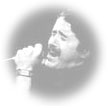Paul Butterfield Biography
 Paul Butterfield was born December 17, 1942 in Chicago, Illinois. A gifted flautist, he was studying with the first chair of the Chicago Symphony by the time he entered High School. By age 15 he had switched to harmonica and guitar and had begun frequenting the Chicago blues clubs with future bandmember, Nick Gravenites. After a short stint at the University of Illinois, Butterfield met Elvin Bishop who had recieved a scholarship to the University of Illinois and the two would play the local blues clubs, jamming with the likes of Howlin' Wolf, Junior Wells and Muddy Waters. In 1963 he and Elvin Bishop lured Jerome Arnold and Sam Lay away from Howlin' Wolfs' Band to form the Paul Butterfield Blues Band. They would later add guitar virtuoso, Mike Bloomfield, and organist Mark Naftalin to the group as they recorded their first album, in 1965.
Paul Butterfield was born December 17, 1942 in Chicago, Illinois. A gifted flautist, he was studying with the first chair of the Chicago Symphony by the time he entered High School. By age 15 he had switched to harmonica and guitar and had begun frequenting the Chicago blues clubs with future bandmember, Nick Gravenites. After a short stint at the University of Illinois, Butterfield met Elvin Bishop who had recieved a scholarship to the University of Illinois and the two would play the local blues clubs, jamming with the likes of Howlin' Wolf, Junior Wells and Muddy Waters. In 1963 he and Elvin Bishop lured Jerome Arnold and Sam Lay away from Howlin' Wolfs' Band to form the Paul Butterfield Blues Band. They would later add guitar virtuoso, Mike Bloomfield, and organist Mark Naftalin to the group as they recorded their first album, in 1965.
In late 1965, the band recieved rave reviews at the Newport Folk Festival where they also backed up Bob Dylan in his now historic defection from traditional folk to electric.
Jazz drummer Billy Davenport replaced an ill Sam Lay prior to the making of their second album East-West which many hail as the cornerstone of psychadelic (or acid) rock. In 1969 he played at Woodstock and then teamed up with Muddy Waters and Mike Bloomfield to record "Fathers and Sons" that paid homage to Muddy and served to broaden Muddy Waters appealto mainstream rock music fans.
By 1971, Paul Butterfield had stopped touring with only occasional appearances such as in the documentary The Last Waltz. His two attempts at comebacks in 1976 and 1981 failed and he died of a drug overdose in Los Angeles in 1987. He was one of the first blues harp players to cross over to rock, and his innovative style puts him among the greatest harp players.
If you are unable to hear the audio clip as the biography page opens click HERE to download the wave file.
To return to the Walkin' Blues Biographies click Here.
 Paul Butterfield was born December 17, 1942 in Chicago, Illinois. A gifted flautist, he was studying with the first chair of the Chicago Symphony by the time he entered High School. By age 15 he had switched to harmonica and guitar and had begun frequenting the Chicago blues clubs with future bandmember, Nick Gravenites. After a short stint at the University of Illinois, Butterfield met Elvin Bishop who had recieved a scholarship to the University of Illinois and the two would play the local blues clubs, jamming with the likes of Howlin' Wolf, Junior Wells and Muddy Waters. In 1963 he and Elvin Bishop lured Jerome Arnold and Sam Lay away from Howlin' Wolfs' Band to form the Paul Butterfield Blues Band. They would later add guitar virtuoso, Mike Bloomfield, and organist Mark Naftalin to the group as they recorded their first album, in 1965.
Paul Butterfield was born December 17, 1942 in Chicago, Illinois. A gifted flautist, he was studying with the first chair of the Chicago Symphony by the time he entered High School. By age 15 he had switched to harmonica and guitar and had begun frequenting the Chicago blues clubs with future bandmember, Nick Gravenites. After a short stint at the University of Illinois, Butterfield met Elvin Bishop who had recieved a scholarship to the University of Illinois and the two would play the local blues clubs, jamming with the likes of Howlin' Wolf, Junior Wells and Muddy Waters. In 1963 he and Elvin Bishop lured Jerome Arnold and Sam Lay away from Howlin' Wolfs' Band to form the Paul Butterfield Blues Band. They would later add guitar virtuoso, Mike Bloomfield, and organist Mark Naftalin to the group as they recorded their first album, in 1965.